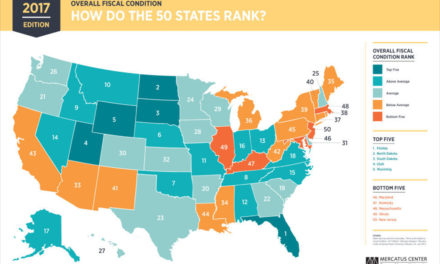When does it make sense to NOT screen trading partners? The case of Airbnb
When does it make sense to NOT screen trading partners? The case of Airbnb

A Conversation with Researcher Raveesh Mayya
 Raveesh Mayya, a PhD candidate in Maryland Smith’s Decision, Operations & Information Technologies program, discusses his recent study “Who Forgoes Screening in Online Markets and When? Evidence from Airbnb” which was supported by the Ed Snider Center. Mayya and his coauthors Shun Ye, Siva Viswanathan and Rajshree Agarwal examine how policy changes in online platforms can impact users — buyers and sellers — in unexpected ways. In a rigorous study examining the case of Airbnb, the authors find that a policy which allows both sellers and buyers to forgo screening prior to booking can reduce bias in the online rental process and increase the heterogeneity of trade partners.
Raveesh Mayya, a PhD candidate in Maryland Smith’s Decision, Operations & Information Technologies program, discusses his recent study “Who Forgoes Screening in Online Markets and When? Evidence from Airbnb” which was supported by the Ed Snider Center. Mayya and his coauthors Shun Ye, Siva Viswanathan and Rajshree Agarwal examine how policy changes in online platforms can impact users — buyers and sellers — in unexpected ways. In a rigorous study examining the case of Airbnb, the authors find that a policy which allows both sellers and buyers to forgo screening prior to booking can reduce bias in the online rental process and increase the heterogeneity of trade partners.
Interviewer: Raveesh, thanks so much for joining us today. Can you please give us an overview of the research you conducted?
Raveesh: Traditionally, on the Airbnb platform, a potential guest sends rental requests to property hosts. The hosts can then look at a guest’s profile and decide whether to accept or reject their request. This type of screening would happen before a host allows a stranger onto their property. This is often thought of as a mandatory step in the rental process, because of information asymmetry.
In our study we found that when a platform gives hosts the option to forgo guest screening, which could potentially increase the risk of a bad match, it turned out to be beneficial to those who adopted this option. Forgoing screening seems counter-intuitive at first. But the outcome that we saw stems mainly from the fact that an option not to screen allowed individual hosts to make a cost-benefit calculus based on their comfort level and past experiences. Specifically, we found that minority and female hosts are the ones most likely to forgo screening, and they also stand to reap the greatest benefits from doing so in terms of higher revenues and potentially smaller penalties in customer ratings.
Interviewer: That’s interesting. Perhaps we can unpack what’s going on. First, can you tell us how online screening helps? Is it an effective way of limiting transactions with questionable trade partners?
Raveesh: Prior literature suggests that screening is a good tool to help ascertain the quality of a potential trade partner. Individuals are expected to exert some effort in assessing the other party prior to engaging in a transaction. Such a search and provision of localized information increases the likelihood that a good-quality seller will match up with a good-quality buyer, thereby increasing overall efficiency. In theory, questionable trade partners either don’t get selected or are incentivized to increase the quality of the goods and services they provide.
Interviewer: So, what are the downsides to screening? Could you provide examples of when it’s not helpful?
Raveesh: One of the things we consistently kept seeing is that new users on the platform, who have no or very few reviews, get passed over. But the issue goes a lot deeper than that. Making screening a mandatory process can elicit discriminatory behavior from transacting partners. For example, there is documented evidence that minority guests or guests with disabilities or special accommodation, get passed over. This has resulted in a lot of negative press and policymaker involvement. So, screening can be bad for the platform as well as some of its users.
Interviewer: What kinds of screening tools does Airbnb offer potential trade partners, either guests or hosts?
Raveesh: The main screening tool is the mechanism where guests cannot book the room immediately but they “request to book.” The platform in fact encourages the guests to write a personal note to the hosts about themselves and their travel plans. The expectation then is that hosts will visit the profile of their guests and ascertain their quality.
The first piece of screening information available to hosts is a guest’s verification badge or seal awarded by Airbnb to platform users who submit official IDs. However, the lion’s share of quality information comes from the site’s reputation mechanism. Here the hosts can check how other hosts have rated the guest on a five-star scale. They also can read the comments posted by their prospective guests about their previous hosts and vice versa.
Interviewer: Can you outline the questions, regarding screening and booking, that you set out to answer in your study? Also, can you briefly explain what you learned?
Raveesh: Our questions revolved around why some people forgo screening and what the outcomes are of doing so. Here, we focused on hosts to see how forgoing screening impacts their occupancy, price and ratings.
On average, we found that the hosts who tended to forgo screening usually fell into the following categories: they saw a falling trend in their revenues; were relatively new to the platform; or, had three or more properties. In addition, when we looked at gender and ethnicity, we saw that African American and female hosts were more likely to forgo screening. The next question was what happens when hosts forgo screening. We found that forgoing screening resulted in higher occupancy rates. On average it’s an equivalent of around $300/month. But in the process, they paid a small price of reduced rating. What’s more interesting, we found that African American and female hosts had greater benefits from forgoing screening than white and male hosts, respectively.
This is where we dug deeper and explored the reasons for such differences in outcomes. We found that female hosts got a lower price for a similar listing than male hosts did. Our observations were consistent with literature which told us that female sellers tend to get lower prices for their product than similar male sellers. We also found that female hosts who also chose to forgo screening tended to have higher quality properties than corresponding male hosts. Similarly, we found that African American hosts that stopped screening were from a higher quality sector within their group compared to white hosts who did the same. Thus because of the quality difference, they gained more from forgoing screening.
A key insight from this research is that giving hosts a choice to decide whether or not they want to screen allowed them to make a cost benefit calculus and decide for themselves which is better. Also, providing this choice has social welfare implications. In essence, economic trade-offs and social welfare implications can go hand-in-hand.
Interviewer: What areas of future research are indicated by your study?
Raveesh: Because ours was a secondary data analysis, a future avenue would be to collaborate with Airbnb (or a similar online sharing platform), access both guests’ and hosts’ activities and derive richer insights.
Also, a follow-up study that we could conduct is in regard to geography and culture. How do these differences alter the adoption of instant booking feature (and the outcomes due to adoption) across cities such as Paris, Los Angeles and New York? Are the country and cultural differences significant?
Interviewer: Thanks for talking with us today, Raveesh!
Raveesh: Thank you!




